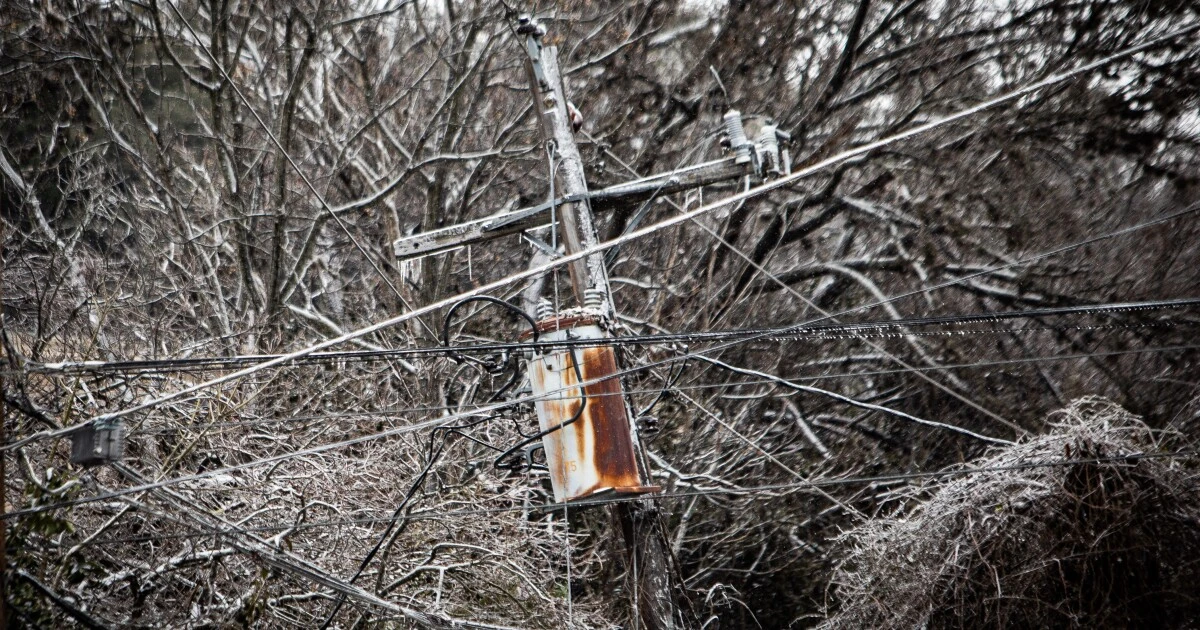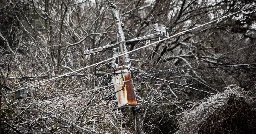Texas power plants have no responsibility to provide electricity in emergencies, judges rule
Texas power plants have no responsibility to provide electricity in emergencies, judges rule

Texas power plants have no responsibility to provide electricity in emergencies, judges rule

Almost three years since the deadly Texas blackout of 2021, a panel of judges from the First Court of Appeals in Houston has ruled that big power companies cannot be held liable for failure to provide electricity during the crisis. The reason is Texas’ deregulated energy market.
The decision seems likely to protect the companies from lawsuits filed against them after the blackout. It leaves the families of those who died unsure where next to seek justice.
In February of 2021, a massive cold front descended on Texas, bringing days of ice and snow. The weather increased energy demand and reduced supply by freezing up power generators and the state’s natural gas supply chain. This led to a blackout that left millions of Texans without energy for nearly a week.
The state has said almost 250 people died because of the winter storm and blackout, but some analysts call that a serious undercount.



It is almost like natural monopolies, such as primary power generation and supply, should be under the control of the Government and not private individuals.
They all used to be. Then Reagan and Clinton happened.
ding ding ding. We have a winner! Give that man a prize!
Most places that are not Texas still have something resembling the old school utility model where the state effectively grants a license to a private company to operate and manage the grid, which is itself a public right of way. This is governed by a state appointed utility board.
Can you point me to where I might learn more about this?
Yep. Essential services should not be for profit.
For profit isn’t inherently a bad thing, but the more essential the service should warrant more and more regulations on safety security and pricing. They should not be given unlimited control over these.
Government agencies are more than capable of providing equally shitty service even without a profit motive, see: DMV. Any monopoly is. This is partially why regarding universal healthcare most people aren’t advocating for government owned healthcare facilities, but the government being the single payer to privately run facilities to control prices.
That’s communism and we are a capitalist country.
The right thing to do under a capitalist economy is to buy the government and give yourself a monopoly.
This isn’t a natural monopoly, it’s protected by legislature and cronyism.
A proper capitalist approach to utilities, then the pipes and wires need to be considered no different then the road they are installed on. Recoup money by selling metered wholesale access to the carriers and utilities.
But we don’t have proper capitalism. We have this bastardized American version that sucks.
We settled it before the damn constitution even started. How these nitwits in DC don’t see how publicly run infrastructure doesn’t provide for the common defense or promote general welfare is beyond me. But I guess running water, heat, affordable healthcare, and an ability to communicate with each other and the rest of the world doesn’t count under that, somehow.
Maybe if the courts took the founders intent from the Prologue instead of the secret letters to their mistresses, we’d have a functional system. But that’s just my opinion.
A government providing services is not communism, it's a first-world standard.
You mean the dudes who owned slaves and thought that only white men were people? Ok yeah, they were righteous ...
The issue here is specifically that they're not monopolies any more, because of deregulation
Ironically, if they were a monopoly, they would have an obligation to provide power in emergencies, per the ruling.
So this is more like the spiderman pointing at spiderman thing.
I believe cartel would be a better name for it in this case. ERCOT is a cartel.
No no... Checks the GOP playbook: we just need to offer a premium power support plan so if the power goes out they'll provide you a backup generator. It just costs twice the normal rate.
I know your joking here, but this is actually the path forward and is being implemented in other states and countries.
The power company provides at a discount or for free a home backup battery to the residence. If not free, You pay off the battery at a very affordable rate but end up with a smaller power bill as the power company can access its power to balance the load, filling it up when power is cheap and the battery being used when power is expensive.
In a blackout, the home owner gets to use the battery and doesn't suffer an outage.
It makes the grid more secure by dispersing it around thousands of homes instead of a large expensive failure points and gives them an improved ability to balance the overall load instead of needing a gas peaker plant.
I think it was recently announced that a Vermont power company was going to onboard 100% of their users in the next few years, but it's happening elsewhere too. If a tree takes something down in a snow storm, people won't lose power giving them time to fix it.
What are yah, some sorta communist? /s He's sayin private companies shouldnt be fuckin us over, get him! /s
Why did it take me so long to finally realize that by privatizing services like these, governments are preemptively shifting the blame when the service fails? Voters who are angry at the energy company won't be (as) angry with the politicians.
Production can be liberalised, but it requires good regulation. Regulation failed to include a rule for responsibility to provided a minimum of energy, the judge can't do more than the regulation law. It works in EU, we didn't have blackout past year even though the situation was dramatic mostly due to the Russian invasion, because the liberalised market allowed efficient sharing of energy where it was most needed.
I wouldn't be so certain a public monopoly could have managed it in such an efficient way (in terms of finance, energy usage and service). People tend to idealize public administration.